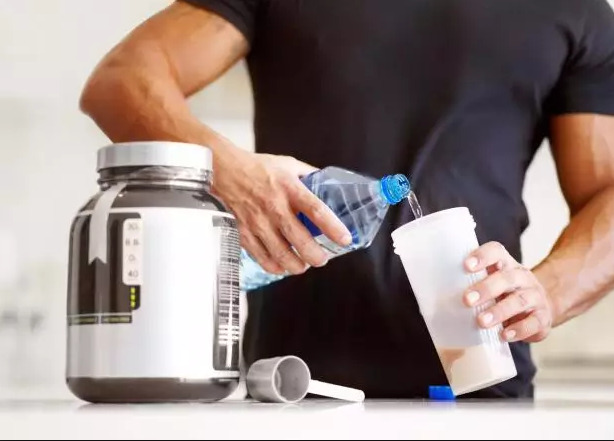It seems that these days every second personal trainer on Instagram spends their days sipping aesthetically pleasing protein shakes and staring at themselves in the mirror. #Fitnesslyfe
But as it turns out, a protein shake a day doesn’t necessarily keep the doctor away.
According to dietitian Lisa Donaldson, protein shakes shouldn’t be consumed by the general population unless they are doing a tough strength session – think push-ups, lunges, jumping jacks, planks or burpees. So if you’re a yogi, short-distance runner, Pilates-lover, or swimmer, perhaps you should rethink that protein shake addiction…
“Consuming protein shakes unnecessarily can actually lead to weight gain and can put pressure on the kidneys,” explains Donaldson. “Plus, in the end, any excess protein will simply be excreted, and given the cost of some protein powers, that’s an expensive trip to the bathroom!”
In fact, to Donaldson’s point, studies show that our body only uses about 20g of protein at any one time, so to get the most benefit from your protein it’s best to spread your consumption out over the day, rather than having it all in one hit.
However, if you do workout harder than The Rock, and are burning to drink a post-sweat shake, don’t suffer from decision-fatigue with the thousands of protein powder brands on the market. Simply look at the ingredients panel; the shorter the list and the more recognizable the ingredients, the better.

“If you can’t find a shake you like, try Whey protein (from milk),” suggests Donaldson. “Whey contains three amino acids: leucine, isoleucine, and valine, and together they work on repairing damaged muscle tissue and helping that tissue grow.”
For those who find protein shakes just a little too expensive, Donaldson advises that a simple glass of milk (or some milk powder) combined with a well balanced diet can be just as effective.
“If you want to ditch the powders in lieu of real food, choosing a protein that contains a ‘high biological value’ is best,” says Donaldson. “So animal-based proteins such as dairy, eggs, meat and fish are a great choice as they provide all the essential amino acids required by the body.”
When creating a post-workout snack, Donaldson recommends combining this lean protein, which assists in muscle repair, with carbohydrates to replenish muscle glycogen, and fluid/electrolytes to rehydrate effectively.
Need post-workout recipe ideas? Try combos such as a banana smoothie with milk and yoghurt; muesli and milk; a sandwich with a meat/cheese or peanut butter filling; tuna with crackers; or eggs on wholegrain toast.


















